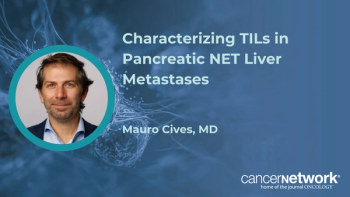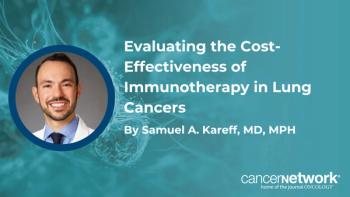
Link Between Placebos and Severe Adverse Events in Clinical Trials
A study shows patients in the placebo group of clinical trials testing against targeted and immunotherapy cancer drugs may experience a high rate of grade 3/4 adverse events.
Patients assigned to the placebo group of clinical trials testing placebo against targeted and immunotherapy cancer drugs may experience a high rate of grade 3/4 adverse events, according to a review and meta-analysis published recently in JAMA Network Open.
According to study researcher Matias Rodrigo Chacon, MD, of Argentine Association of Clinical Oncology, and colleagues, this finding “should be considered by investigators, sponsors, regulatory authorities, and patient support groups.”
Chacon and colleagues conducted this analysis to determine the incidence of placebo adverse events in modern cancer clinical trials.
“Adverse events (AEs) resulting from placebo administration are called nocebo effects,” the researchers explained. “In oncology, there are several studies about the placebo effect associated with objective response and improvement of clinical conditions, but there are only a few about placebo AEs.”
They looked at publications from 2000 to 2018 that were double-blind, randomized, placebo-controlled, phase III studies. Only trials with targeted therapy or immunotherapy-related drugs were included. The review screened 731 studies and identified 10 eligible studies for four tumor types (melanoma, non-small cell lung cancer, gastrointestinal stromal tumor, and renal cell carcinoma).
Within these four studies, 11,143 patients were in the treatment groups and 4,873 were in the placebo groups.
The overall mean incidence of any-grade placebo adverse events was 85.1%. The most commonly occurring grade 3/4 placebo adverse events were hypertension (2.8%), fatigue (1.0%), and diarrhea (0.8%). The overall pooled incidence of grade 3/4 adverse events for placebo was 18%, but reached greater than 20% in three trials.
“This finding, frequently not included in the informed consents, should be known before making an autonomous decision of participating in a randomized clinical trial,” the researchers wrote. “Although many patients may experience high-grade AEs after a local cancer treatment, the high rate of severe placebo AEs in randomized clinical trials suggests that the use of placebo in any situation in the adjuvant setting should be carefully considered.”
Median placebo study drug duration was 10 to 15 months. On average, about 4% of patients discontinued study placebo because of adverse events.
“Median duration of placebo administration is a factor that should be taken into account when placebo AE reports are considered,” the researchers wrote. “In the studies analyzed, a trial with low median placebo exposure reported a low proportion of grade 3/4 placebo AEs, whereas studies with the highest median placebo exposure reported a high proportion of grade 3/4 placebo AEs.”
Eduardo Bruera, MD, of the department of palliative, rehabilitation, and integrative medicine at the University of Texas MD Anderson Cancer Center told Cancer Network, "This study highlights the importance of having a placebo arm whenever possible in therapeutic clinical trials. However, it is important to differentiate patient reported outcomes (PROMs) observed during the placebo phase from PROMS attributed to the placebo itself, especially in longer-term studies."
Newsletter
Stay up to date on recent advances in the multidisciplinary approach to cancer.












































